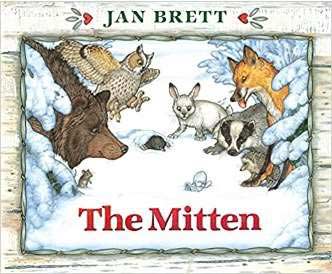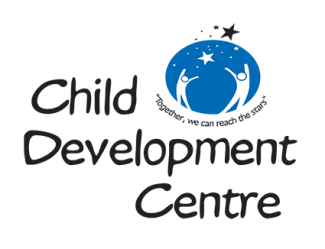March 2022 newsletter
Holding space, creating connection
"The mole, tired from tunneling, discovered the mitten and burrowed inside. It was cozy and warm and just the right size, so he decided to stay.”
Jan Brett, The Mitten
In the classic story The Mitten, each animal finds room in the ever-growing mitten. Big or small, predator or prey, spiky or smooth, there is a welcoming and safe space for everyone! The mitten simply stretches and changes shape to accommodate for everyone’s needs.
As educators, we have opportunities to create supportive and inclusive environments for each child in our care. An inclusive early learning culture ensures that all children can be actively and meaningfully involved in play and learning alongside one another.
“Educators consider and include every child’s way of being, doing, and learning so that every child can participate, and their abilities and interests are honoured”
(BC Early Learning Framework, 2019, p. 22)
In an early learning environment, we can offer a welcoming and safe space for each child, by providing additional supports or removing barriers when needed. Inclusive early learning spaces are designed so that each child experiences feelings of connection and competence. Early childhood educators demonstrate values such as empathy, acceptance, and kindness when we purposefully create spaces for each diverse child to thrive.
Love’s language is imprecise, fits more like mittens than gloves.
Madam C. J. Walker
Do you know?
Yukon University will be offering a Professional Development Pathway for level 3 equivalent educators!
The Early Learning Child Care program at Yukon University is offering a limited time diploma program. The program is available to support educators who currently hold a level 3 equivalent certificate and who are currently employed at a licensed Yukon early learning child care program.
The program is designed to support educators with a level 3 equivalent certificate in meeting the requirements for a level 3 certificate.
Opportunities within this program include individual pathways to level 3 completion; diploma completion; tuition funding; innovative, flexible course and practicum delivery; and professional mentorship.
To find out if you qualify for this program through Yukon University ELCC, please contact Rea Knight:
Phone: 668-8845, or
Email: [email protected]
For information about assessment of your level 3 equivalent credentials, contact Tammy Reinhart:
Phone: 332-7571, or
Email: [email protected]
Book Nook

The Mitten – a classic Ukrainian folk tale
As with most traditional folk and fairy tales, many artists, illustrators and storytellers have adapted The Mitten. It tells the story of a young child who drops a mitten in the snow and carries on without realizing that the mitten is missing. One by one, forest animals find the mitten and crawl inside. As each new creature climbs inside to find shelter and warmth, the mitten stretches and grows.
How many animals will be able to fit inside the mitten? Choose any of the delightful versions of this tale (or all of them) to find out!
"Strength lies in differences, not in similarities."
Stephen Covey
Does your child care centre or family day home have children with diverse abilities?
- Do you find it challenging to engage all children in activities?
- Do you feel equipped to support the unique needs of each child?
Inclusive child care builds on the individual strengths of each child. All children can participate meaningfully in all parts of the program.
Early Learning Program Support from the Child Development Centre (CDC) can help.
The Early Learning Program Support (ELPS) team can spend two to three weeks supporting you and your centre as you support the needs of diverse learners. Our services are free, and you can stop them at any time.
How do we do this?
- We join alongside you in your group (we play, clean up toys, wash tables); we get to know you and your values, your routine, and the children in your care.
- You tell us what you want support with and how you want us to help.
- We can bring in fun resources and ideas, show you some strategies, provide coaching, or offer professional development designed just for you based on what you want.
Contact Ashley Griffis (early learning coordinator) to learn more:

Resources worth checking out
Watch this short video on what inclusion has to do with bowling: https://youtu.be/RYtUlU8MjlY
Read more about inclusive child care: https://www2.gov.bc.ca/assets/gov/family-and-social-supports/child-care/running-a-daycare-or-preschool/inclusive-child-care-toolkit/inclusive-childcare-toolkit.pdf
Learn more about the importance of creating inclusive environments for all early learners:
https://www.college-ece.ca/wp-content/uploads/2021/10/Practice_Guideline_Inclusion.pdf
When a flower doesn’t bloom, you fix the environment in which it grows, not the flower.
Alexander Den Heijer
Explore
Activity idea:
“The Mitten” lends itself wonderfully to storytelling activities. One of our favourites is to make white mittens out of felt (either sewn or glued together), and then create a set of story stones for the woodland creatures which discover the mitten. Children will be excited to sew or glue their own mittens and to paint their own collection of animals.
- How can you teach about Yukon animals as you create the story stones?
- What kinds of other materials can you choose to create the animals?
- How can you encourage the children to create and tell their own versions of the story?
- Can the children use other materials to tell the story? Puppets? Drawings? Dressing up and pretending to be the animals?
(Adapted from https://mymountainwild.com/2020/02/23/the-mitten-astorytime-activity-with-story-stones/)
There are many ways to re-tell the story of “The Mitten”. Enjoy exploring the links below to find even more ideas!
Books - there are many versions of “The Mitten”:
- The Mitten by Jim Aylesworth
- The Mitten by Alvin Tresselt
- The Mitten: a classic pop-up Folktale by Southwick
- The Mitten La Moufle by Cecile Hudrisier
Websites:
Grow
“As children engage with the world, they delve into inquiries, generate new ideas, solve problems, and build theories of people, places, and materials. These engagements can be vibrant, exhilarating and noisy, or they can be quiet, focused, and solitary. Providing time, space, and materials rich with possibilities for experimenting, imagining, and transforming allows children to create and explore in diverse ways based on their interests. Creating contexts for each child’s engagement and participations is perhaps the most important way to inspire meaningful learning experiences.”
(B.C. Early Learning Framework, 2019, p. 3)
Consider these reflective questions:
- What opportunities do children have to listen to one another?
- What opportunities do children have to access materials that can be transformed or investigated?
- Do children have enough time to immerse in engaging play?
Story telling is about connecting to other people and helping people to see what you see.
Michael Margolis